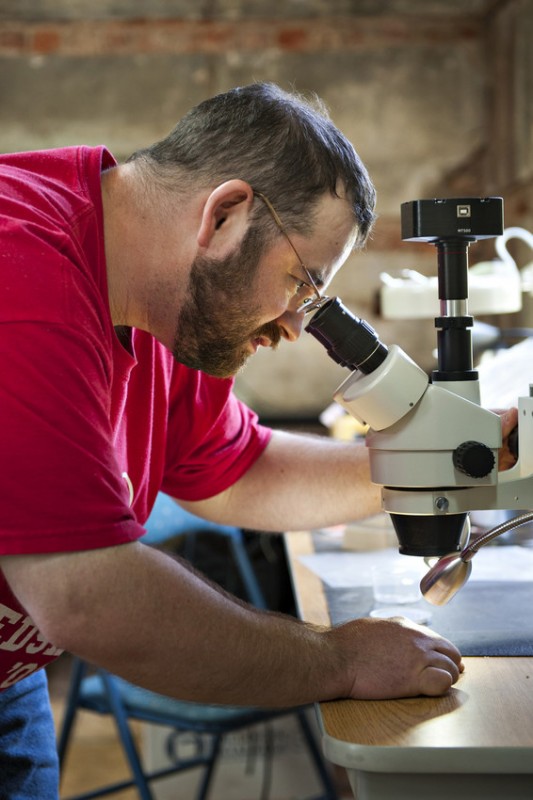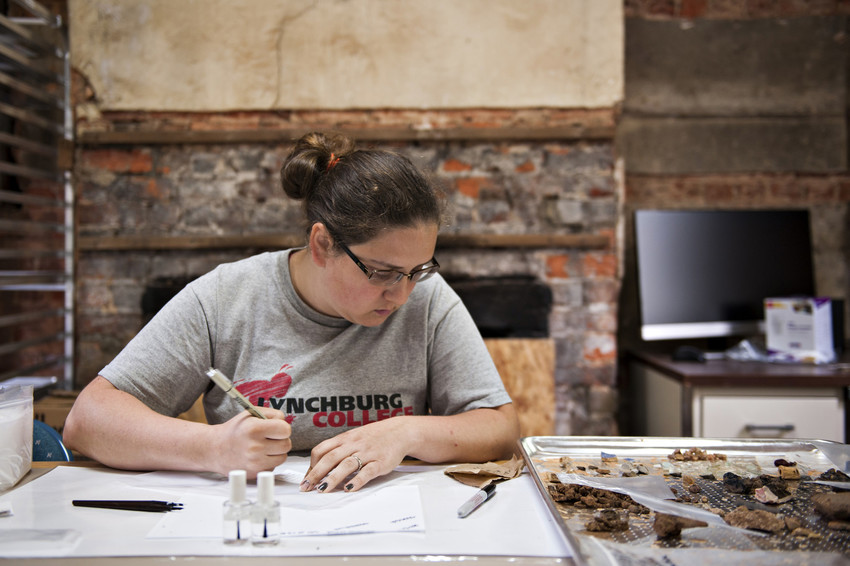
Digging in the soil outside Historic Sandusky has been like digging for buried treasure, even though the artifacts LC students unearthed this year would not sell for much online.
“It’s still treasure,” said James Robbins ’18. “It has historical worth.”
Over the past five weeks, James and four other students continued excavating a site by the historic home not far from the LC campus. Their digging yielded a bevy of artifacts—shotgun casings, a cast-iron stove leg, pieces of ceramics and glass, a smoking pipe, and an 1836 dime with a small hole in it, indicating that it may have been worn on a necklace.
LC has held the summer archaeology field school at Sandusky for three years. Each year, the participants look for evidence that would establish the exact location of a kitchen that once stood near the Sandusky home, which served as Union headquarters during the Battle of Lynchburg in the Civil War. Pinpointing the site would allow reconstruction of a historically accurate kitchen in the correct location. The ideal find would be foundation walls, but other signs help in the process. For example, a concentration of broken window glass can help establish the location of windows—and even the number of windows present.
This summer, the students had the help of an archaeology lab that the engineering firm Hurt & Proffitt moved to Sandusky this summer. The lab equipment allowed the students to get experience with cleaning, sorting, and analyzing artifacts, as well as entering their findings into a professional archaeological database. A high-powered microscope allowed them to get a close look at the coin to determine the date.
Digging for artifacts is only part of the job of an archaeologist; knowing what to do with the artifacts later, in the lab, will be beneficial to the students’ careers. “These are the sorts of skills that help them get jobs,” said Lori Lee, a history professor who teaches the archaeology field school. “It’s a truly good teaching tool.”
The students appreciated getting the hands-on experience with the lab. “We’re actually being taught how to use the equipment,” said Victoria Funk, a history graduate student. “We’re using skills that will help us as historians.”


